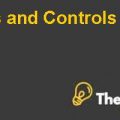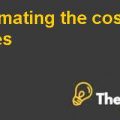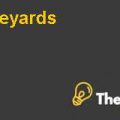
Question 1
What are the main challenges to Standard Integrated Tax Administration System (SIGTAS) system implementation at Afghanistan revenue department?
The Standard Integrated Government Tax Administration System (SIGTAS) is an integrated information system that is hard to implement. It is a helpful tool for governments to automate taxes and to license administration. SIGTAS is being implemented at the Afghanistan Revenue Department, it is set to transfigure their functions and increase their control over state revenue.
Afghanistan Revenue Department is committed to providing quality services by assisting taxpayers to understand and in meeting their tax obligations through implementing law without being unbiased and in a just manner. Afghanistan Revenue Department (ARD) gathers all revenue due at the lowest cost possible whilst rendering a professional service expands the tax base by identification of non-compliance and establishes a discretionary compliance taxpaying environment based on self-assessment by taxpayers with an adequate knowledge.
Main challenges to (SIGTAS) system implementation at Afghanistan revenue department
The implementation of the Standard Integrated Government Tax Administration System (SIGTAS) in Afghanistan faces many obstacles as it has some requirements that need to be fulfilled.
Financial Barriers
Firstly, Afghanistan is heavily dependent on direct international aid to finance its periodic and development budgets. Afghanistan is unable to sustain its current spending, tax and other policies in the long run without putting government solvency at risk or defaulting on few liabilities or expenditures.
In spite of the rise in revenues, the government cannot help but massively rely on donors for the coming years as their budgetary targets are unlikely to be met in such a short span of time. The Government of Afghanistan’s (GoA) primary task is to increase revenue for government expenditure.
Challenges related to collection of taxes
Afghanistan encounters a problem regarding collection of taxes from the local employees of foreign embassies. Some embassies are being cooperative while most of them are not. If these embassies cooperate, then the amount of annual income tax can increase by a fair amount.
A widely popular reason of not paying tax is due to the corrupt regime and negative publicity, however if they start paying taxes and make the government self-sufficient, then the government might be able to implement SIGTAS smoothly and cater the economic, social and political situations of the country.
The Standard Integrated Government Tax Administration System (SIGTAS) depends upon the use of a unique Taxpayer Identification Number (TIN), which is critical in its proper functioning; a minor error will have costly repercussions. TIN uses a 10 digit unique number to identify each taxpayer and credit his account when taxes are paid, thus making the tax authorities dependent upon the TIN to fetch local taxpayer records, identify non-compliant taxpayers and manage their activity (Department, n.d).
The issue as mentioned earlier raises a barrier in implementing SIGTAS as the economic situation of Afghanistan does not allow the tolerance of such risk of errors and incur these extra costs.
Afghanistan’s tax regime has been based on ‘self-assessment’ i.e. the taxpayers are determining how much should be paid on the basis of income records and obligations as per law. This has been happening since 2005 and if the Standard Integrated Government Tax Administration System (SIGTAS) is implemented, then the taxpayers will have to let go of this “self-assessment” behavior and let the system do its work. This is prone to permeate disarray among the taxpayers.
Economical factors
Afghanistan’s current Gross Domestic Product (GDP) ranks as one of the lowest in the world preventing the country from the achievement of fiscal sustainability.
The implementation of Standard Integrated Government Tax Administration System will introduce high maintenance costs, which need to be met regularly. SIGTAS will require continuous supervision and regular updates, the invitation to further costs is evidently, a risky deal.
The quest for peace in Afghanistan is ongoing and the arrival of Standard Integrated Government Tax Administration System (SIGTAS) can prove to be as chaotic if the economic condition falls any further. The fall in economy will trigger negative response from the countries aiding Afghanistan. The cessation of international assistance will bring Afghanistan in a state of disarrangement and hinder their pursuit of peace and prosperity (Mohmand, 2012).Standard Integrated Government Tax Administration System (Sigtas) In Afghanistan Case Solution
Effective workforce related challenges
A challenge faced by Afghanistan is the lack of skilled individuals to carry out their tasks efficiently and effectively. SIGTAS demands equipped individuals to use the software and manage every aspect of the tax management process. The personnel need to be trained in order to use SIGTAS, another option will be to hire skilled individuals but Afghanistan won’t be able to afford their wages.
With an entirely new system, the revenue department will need to employ people to run SIGTAS, this will incur further administration costs as the department must consist of relevant skilled personnel.............
This is just a sample partial case solution. Please place the order on the website to order your own originally done case solution.












